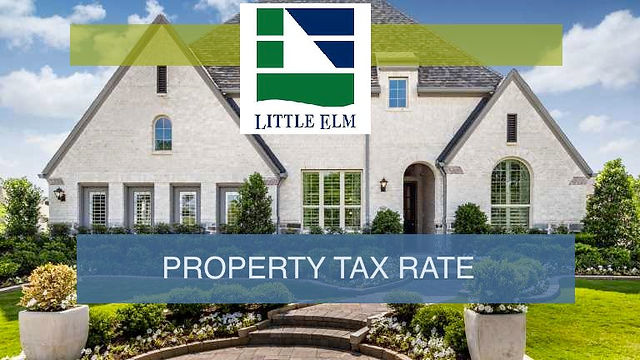
Sellers looking to sell their house quickly without the help of a traditional agent can turn to companies that buy houses for money. These companies can provide you with a cash offer for your home within a few days and close on the sale quickly, often in a matter of weeks.
Selling your house to a company who buys houses for money is simple. Sometimes, you can even get a personal representative to guide you through the process. It usually begins with a call or an online form where you provide information about your house.
After receiving the information, the representative will evaluate your property and make you a non-negotiable cash offer on your home. This offer is based on the condition of your home, and is typically a good deal below what you might expect to get from other buyers.

Accepting the cash offer is the first step. Next, a home inspection will be performed. An inspector from a third party will inspect the property and make note of any repairs or maintenance that are needed. The home-buying company then modifies its offer, adjusting the price proportionally if any repairs are needed.
Selling your home to a cash buyer will also save you the hassle of dealing directly with a realtor, open houses and other showings. A quick closing can save you significant time and stress.
If you're facing an unexpected financial or eviction, you might be able to turn to a company that will buy houses for cash. You may avoid having to pay costly fees or penalties related to the foreclosure process by using a company that can pay all the moving expenses.
One of the biggest drawbacks to using a company that purchases houses for cash is the fact that not all companies will give you fair market values. Companies that want to sell distressed homes are more likely to do this.

You can compare offers from top home buyers and get an opinion of a local realtor on the value of your home to determine which company is best for you. Sign up to Clever Offers for a free account.
Many companies buy houses for cash. These include real estate investors, home flippers, brokers, lenders, and brokers who have the money to promote purchases. In addition to these more traditional home-buying companies, there are also iBuyers and homeowners who are looking to buy homes for cash.
While some of these may be legitimate, others might be scams. Do your research to ensure you don't get ripped off before you work with any company.
FAQ
Is it possible sell a house quickly?
It may be possible to quickly sell your house if you are moving out of your current home in the next few months. But there are some important things you need to know before selling your house. First, you need to find a buyer and negotiate a contract. Second, prepare the house for sale. Third, it is important to market your property. You must also accept any offers that are made to you.
What is the maximum number of times I can refinance my mortgage?
This is dependent on whether the mortgage broker or another lender you use to refinance. You can typically refinance once every five year in either case.
How much does it take to replace windows?
Windows replacement can be as expensive as $1,500-$3,000 each. The cost of replacing all your windows will vary depending upon the size, style and manufacturer of windows.
Statistics
- Private mortgage insurance may be required for conventional loans when the borrower puts less than 20% down.4 FHA loans are mortgage loans issued by private lenders and backed by the federal government. (investopedia.com)
- It's possible to get approved for an FHA loan with a credit score as low as 580 and a down payment of 3.5% or a credit score as low as 500 and a 10% down payment.5 Specialty mortgage loans are loans that don't fit into the conventional or FHA loan categories. (investopedia.com)
- Based on your credit scores and other financial details, your lender offers you a 3.5% interest rate on loan. (investopedia.com)
- The FHA sets its desirable debt-to-income ratio at 43%. (fortunebuilders.com)
- Over the past year, mortgage rates have hovered between 3.9 and 4.5 percent—a less significant increase. (fortunebuilders.com)
External Links
How To
How to Manage A Rental Property
Renting your home can be a great way to make extra money, but there's a lot to think about before you start. We'll help you understand what to look for when renting out your home.
If you're considering renting out your home, here's everything you need to know to start.
-
What do I need to consider first? You need to assess your finances before renting out your home. If you are in debt, such as mortgage or credit card payments, it may be difficult to pay another person to live in your home while on vacation. Check your budget. If your monthly expenses are not covered by your rent, utilities and insurance, it is a sign that you need to reevaluate your finances. You might find it not worth it.
-
What is the cost of renting my house? There are many factors that go into the calculation of how much you can charge to let your home. These include factors such as location, size, condition, and season. You should remember that prices are subject to change depending on where they live. Therefore, you won't get the same rate for every place. The average market price for renting a one-bedroom flat in London is PS1,400 per month, according to Rightmove. This means that your home would be worth around PS2,800 per annum if it was rented out completely. It's not bad but if your property is only let out part-time, it could be significantly lower.
-
Is it worthwhile? You should always take risks when doing something new. But, if it increases your income, why not try it? Before you sign anything, though, make sure you understand exactly what you're getting yourself into. Not only will you be spending more time away than your family, but you will also have to maintain the property, pay for repairs and keep it clean. You should make sure that you have thoroughly considered all aspects before you sign on!
-
What are the benefits? Now that you have an idea of the cost to rent your home, and are confident it is worth it, it is time to consider the benefits. Renting out your home can be used for many reasons. You could pay off your debts, save money for the future, take a vacation, or just enjoy a break from everyday life. It's more fun than working every day, regardless of what you choose. If you plan well, renting could become a full-time occupation.
-
How do you find tenants? After you have decided to rent your property, you will need to properly advertise it. You can start by listing your property online on websites such as Rightmove and Zoopla. Once you receive contact from potential tenants, it's time to set up an interview. This will help to assess their suitability for your home and confirm that they are financially stable.
-
How can I make sure that I'm protected? If you're worried about leaving your home empty, you'll need to ensure you're fully protected against damage, theft, or fire. You will need to insure the home through your landlord, or directly with an insurer. Your landlord will typically require you to add them in as additional insured. This covers damages to your property that occur while you aren't there. If your landlord is not registered with UK insurers, or you are living abroad, this policy doesn't apply. In such cases, you will need to register for an international insurance company.
-
Sometimes it can feel as though you don’t have the money to spend all day looking at tenants, especially if there are no other jobs. However, it is important that you advertise your property in the best way possible. A professional-looking website is essential. You can also post ads online in local newspapers or magazines. A complete application form will be required and references must be provided. Some people prefer to do the job themselves. Others prefer to hire agents that can help. Interviews will require you to be prepared for any questions.
-
What should I do after I have found my tenant? If you have a contract in place, you must inform your tenant of any changes. Otherwise, you can negotiate the length of stay, deposit, and other details. While you might get paid when the tenancy is over, utilities are still a cost that must be paid.
-
How do I collect rent? When it comes to collecting the rent, you will need to confirm that the tenant has made their payments. If they haven't, remind them. After sending them a final statement, you can deduct any outstanding rent payments. If you're having difficulty getting hold of your tenant you can always call police. The police won't ordinarily evict unless there's been breach of contract. If necessary, they may issue a warrant.
-
What can I do to avoid problems? You can rent your home out for a good income, but you need to ensure that you are safe. You should install smoke alarms and carbon Monoxide detectors. Security cameras are also a good idea. Make sure your neighbors have given you permission to leave your property unlocked overnight and that you have enough insurance. You must also make sure that strangers are not allowed to enter your house, even when they claim they're moving in the next door.